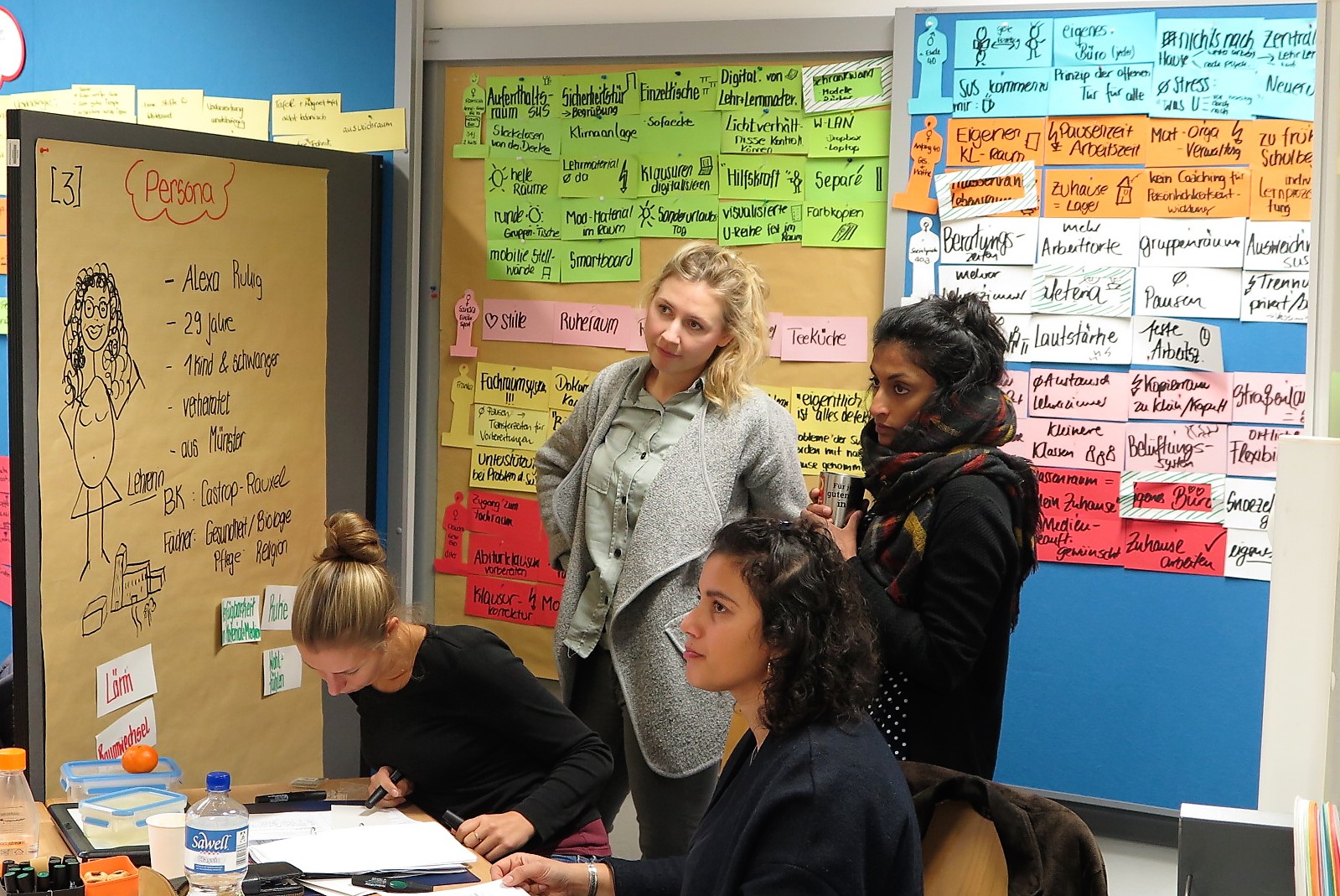

Learning Culture 4.0: Student-Centered - Flexible - Collaborative (since 2021)
Münster University of Applied Sciences has set the goal of involving students as initiators and contributors to innovation in the further development of their learning environment. The project aims to systematically develop a more flexible learning path and a greater community experience at learning venues in a way that meets the needs of the students. Münster University of Applied Sciences stands for an error culture in which mistakes are seen as opportunities for improvement and are therefore consciously accepted. This project is led by Prof. Dr. Thilo Harth.
Design thinking for vocational schools?! (since 2017)
Design thinking is an innovative approach that is used to solve concrete problems and develop new products. It is often used for digitisation projects. Not only does it focus on technical aspects, but also on organisational and social aspects, which makes the interdisciplinary character of design thinking visible.
With regard to vocational education and training, design thinking is currently of secondary importance, i.e. it is apparent that it has hardly been addressed at all. In the context of a shortage of findings, Prof. Dr. Marc Krüger has therefore dealt with the question of which levels of action in vocational education and training can benefit from Design Thinking. First findings have been published
-
Krüger, M. (2019). Design Thinking for German Vocational Schools? Discovering of an Innovative Approach by Testing in Teacher Education. Open Education Studies, 1(1), 209-219 --> zugehöriges Authorinterview finden Sie hier
-
Krüger, M. (2019). Design Thinking für berufsbildende Schulen? Annährung an einen Innovationsansatz über dessen Erprobung in der Lehrerbildung. Journal of Technical Education (JOTED), 7(1), 147-162.
In response to the needs of the seminar "Future Workshop", a self-test has also been developed which records the personality traits according to the five dimensions of personality description (Big Five). It provides recommendations on how the person being tested should behave optimally in a DT team. The self-test has been used at the IBL since summer semester 2022 in the course "Future Workshop" and is still being evaluated. A publication is in preparation.
Didactic goes DFC! Development of collaborative learning methods with digital flipcharts for vocational (teacher) training (2019-2022)
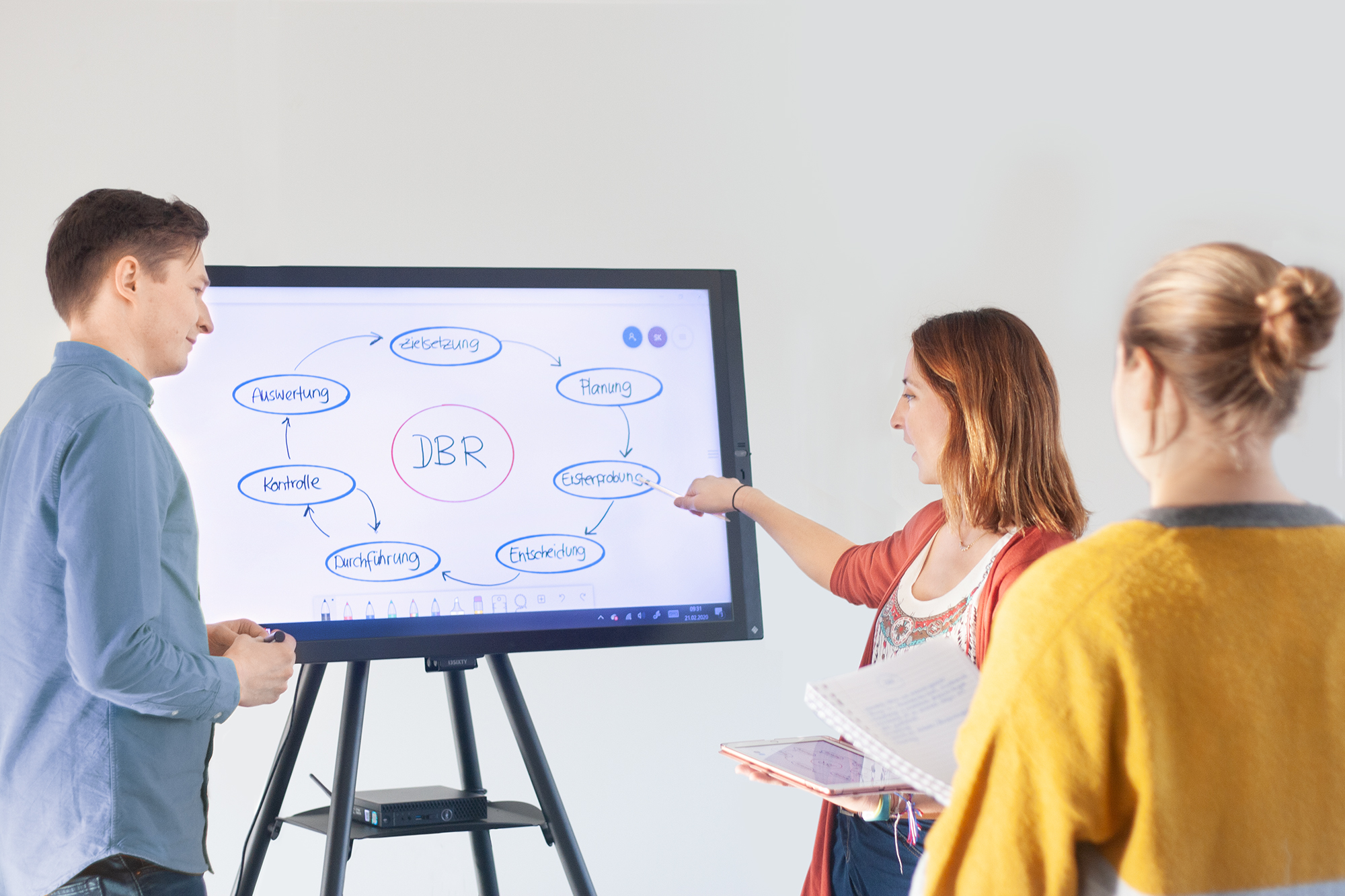
The overall aim of the research project was to develop collaborative learning methods with the latest generation of Interactive Whiteboards - so-called Digital Flip Charts, abbreviated DFC - for teaching at Vocational Schools. One example of use is to explore the possibility of promoting learning location cooperation (Vocational Schools - companies - inter-company training centres) through the use of DFC. The findings show that they promote collaborative learning processes and that conditions for success can also be named for this. Furthermore, recommendations for teachers on how collaborative learning processes can be successfully implemented with DFC were developed:
.- Krüger, M., Kastrup, J., Cejas Sainz, M.V. & Koch, S., (2022). Gestaltung kollaborativer Lehr-/Lernprozesse mit digitalen Flipcharts - Handlungsempfehlungen für Lehrende. In N. Bürger, U. Schütte & C. Wecker (Hrsg.), Digitalisierungsbezogene Kompetenzen fördern - Herausforderungen, Ansätze und Entwicklungsfelder im Kontext von Schule und Hochschule. Universitätsverlag Hildesheim: Hildesheim, 169-175.
- Krüger, M., Kastrup, J., Cejas Sainz, M.V. & Koch, S. (im Druck). Können "Digitale Flipcharts (DFC)" kollaborative Lehr- /Lernprozesse unterstützen? Wie Design-Based Research-Studien über einen vergleichenden Ansatz diese Frage in der beruflichen Lehrerbildung beantworten. Beitrag für den Tagungsband der AG BFN vom 28./29.9.20.
digiLL NRW: Commenting and discussing videos (2019-2020)
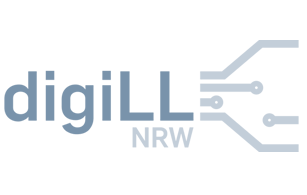
For the joint project digital teaching and learning in teacher education, we have developed two online lessons to enhance the media didactic and pedagogical competencies of student teachers, teachers in the preparatory service and trained teachers. The subject of the online lessons are the didactically intended annotations of videos in order to enable a critically-reflective as well as cooperative examination of cinematic representations. The online lessons comprise approx. 60 minutes of self-learning time and are published on the digiLL_NRW portal as an Open Educational Resource (OER).
Contact @ IBL: Prof. Dr. Marc Krüger
DIGITA(A)L EUREGIO EDUCATION - Digitization in Education (2020-2021)
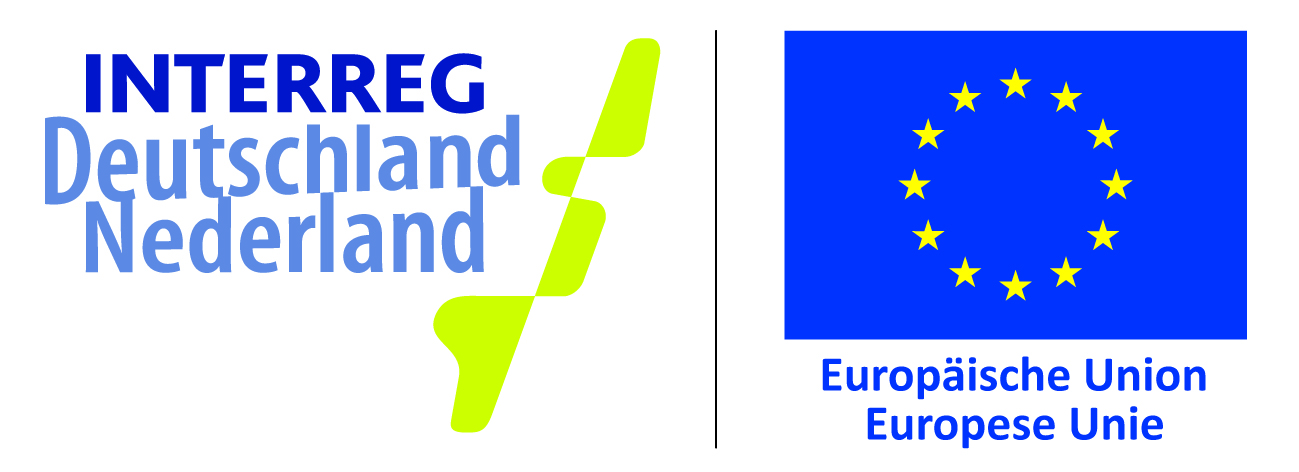
EnergyDucation: Exploring "Smart Energy Management" (2018-2021)

Run Time: 1.10.2018 bis 31.07.2021
Execution Organisation: European Union
Program: Erasmus+
Partner: Zubigune Fundazioa (Spain), Münster School of Vocational Education (Germany), ROC Alfa-colleg (Netherlands), LULEA KOMMUN (Sweden), NTI-MMM AS (Norway)
Contact Person @ IBL: Prof. Dr. Marc Krüger
Objectives
- Open education an innovative pratices in a digital era
- Developing VET buisness partnerschips aimed at promoting work-based learning in all its forms
- Introducting systematic approaches to, and oppertunities for, the initial and continuous professional development of VET teachers
For the German research community the results were be published here: Krüger, M., Stallmeier, N., Wösten, H. & Schäfer, F. (2021). Smart Energy Management (SEM): Annährung, Relevanz und Online-Lernmodule". lernen & lehren, 36 (4), 160-165.
Fostering Communicative Competences and Learning to Foster them: Peer Teaching, Microteaching and Video Feedback in Professional Teacher Education (2017-2018)
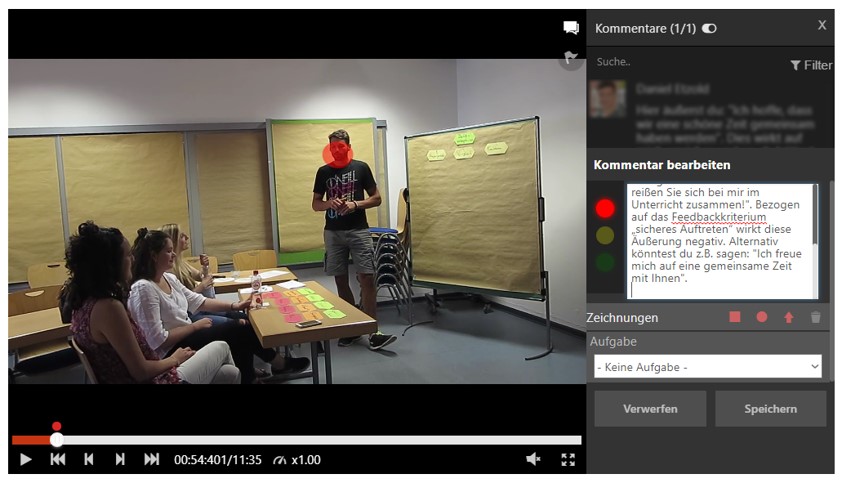
Teachers at vocational schools are challenged twice with regard to competent communicative action: First, they must communicate competently with students in the classroom. This includes introducing oneself to a new class, giving a teacher presentation, class and subject discussions as well as conflict-laden discussions. This means that they must be able to master a variety of conversational situations in order to be able to design successful lessons. Meta-studies on success factors in teaching show that it is precisely this competence of teachers that is decisive for the high quality of teaching/learning processes. Secondly, they must be able to foster communicative competence in students as an intrinsic component of subject competence, self-competence and social competence. Therefore, they must be able to give students competent feedback on their communicative performance. This requires knowledge of communicative models that serve to analyze the communicative performance of the students and, in addition, supporting (teaching) concepts that enable qualified feedback for the students.
Based on the approach of peer-, microteaching and video feedback, a seminar concept was developed in this project by Prof. Dr. Marc Krüger, which particularly prepares vocational teacher training for the communicative requirements in vocational schools. The developed seminar concept for the promotion of communicative competences of the prospective teachers focuses on the distributed and cooperative feedback process of the students among each other. The results of the project are summarized in a publication:
Etzold, D. & Krüger, M. (2021). Development of Communication Competence in Pre-Service Vocational Education Teacher Training. Higher Education Studies, 11 (4), 31-39.
Change Moves 2.0: Digitalization & Diversity (2012-2021)
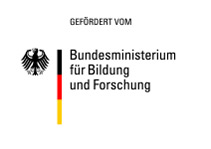
The goal of the quality pact for teaching - project "Wandel bewegt" ("Change Moves") is to strengthen the competence-oriented teaching/learning culture at Münster University of Applied Sciences and to advise and support lecturers in higher education didactic issues. The project is supervised by Prof. Dr. Thilo Harth from the Technology Didactics department.



